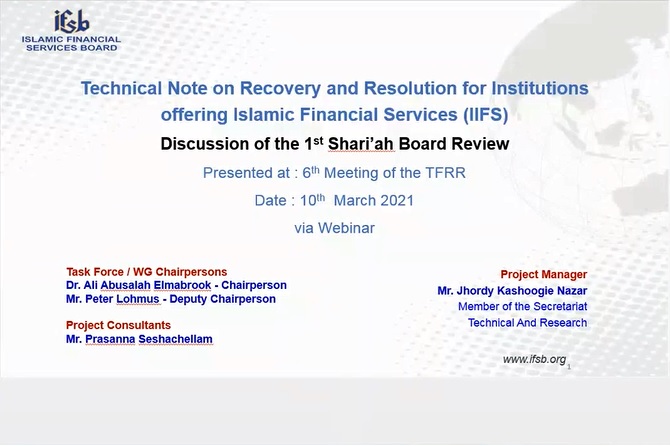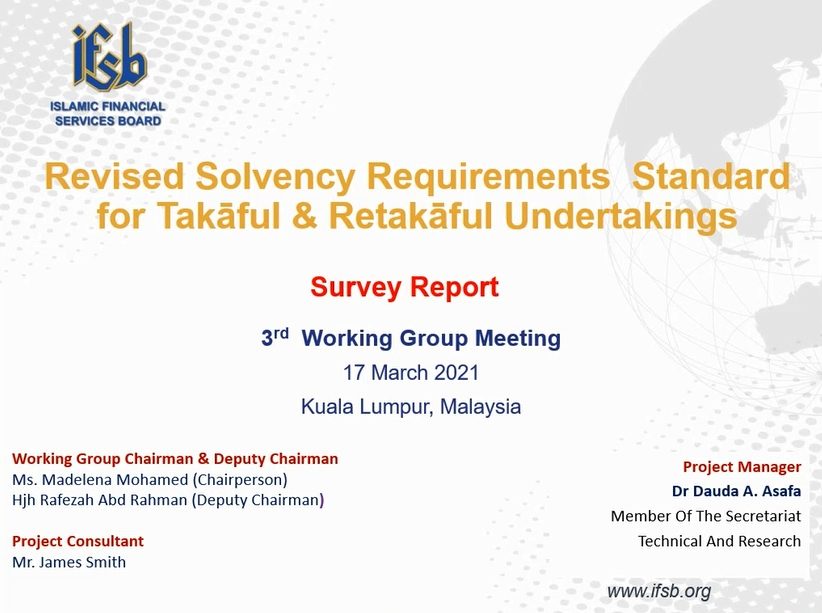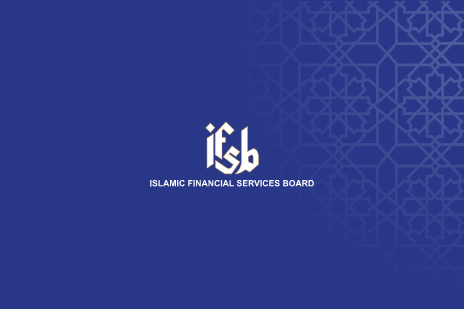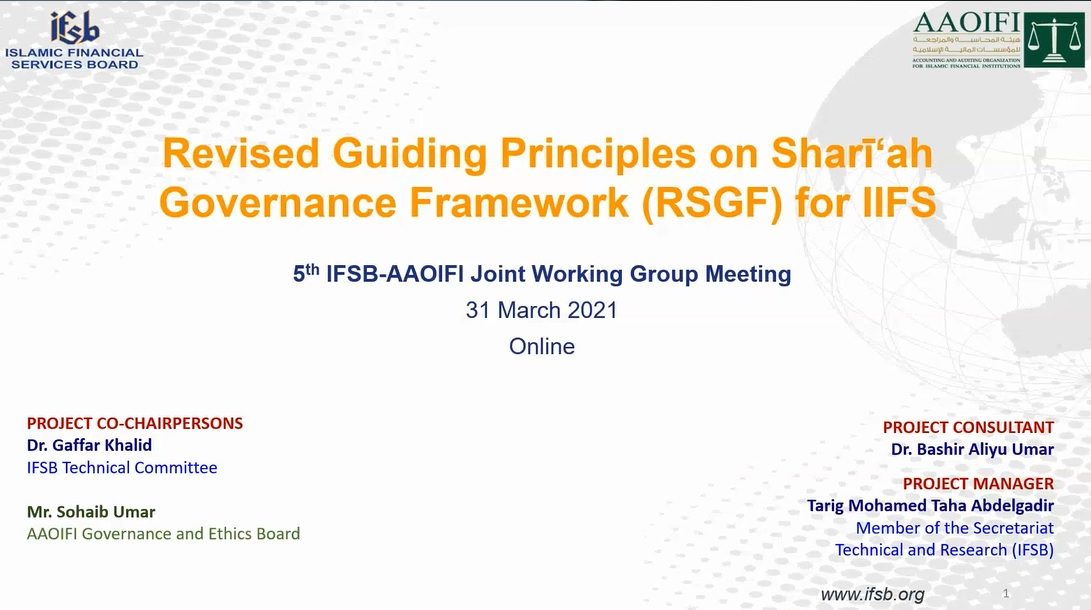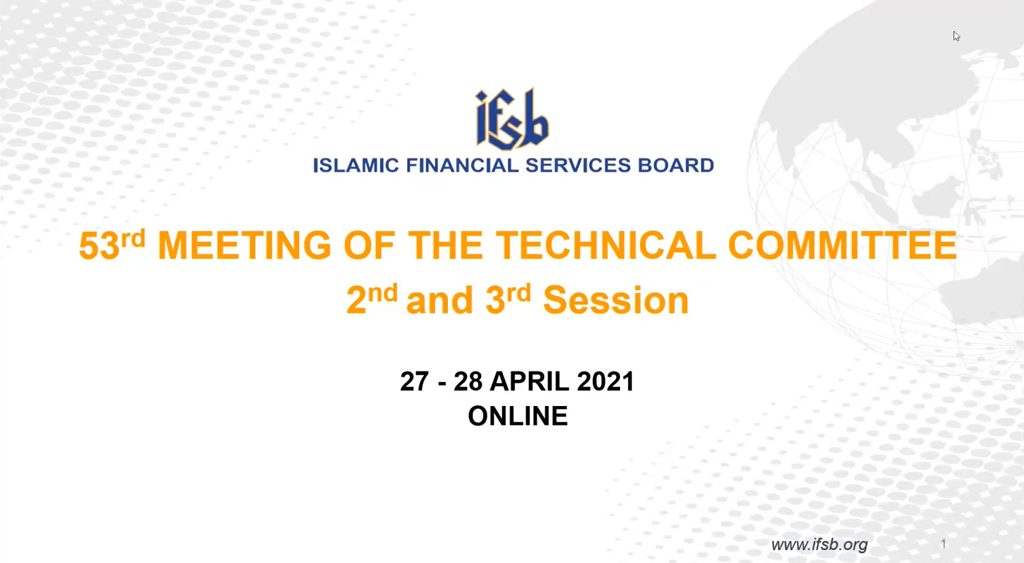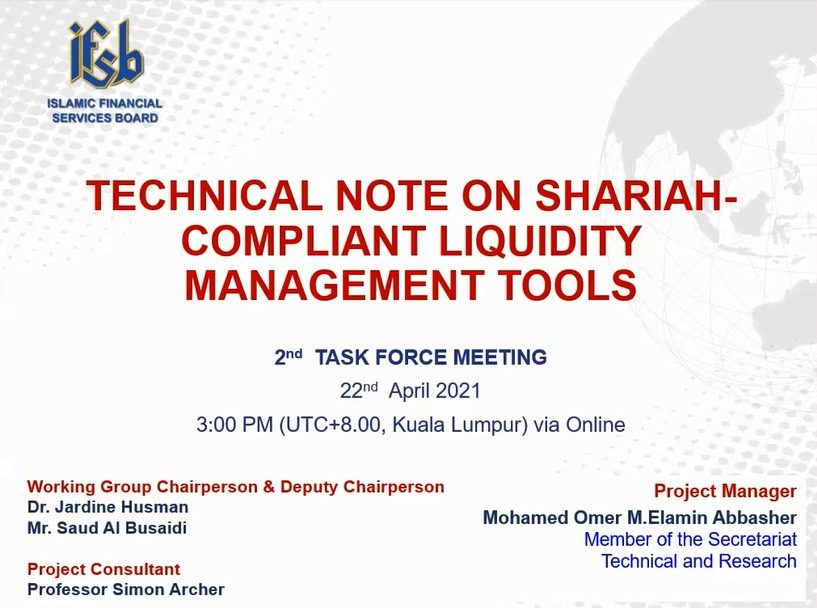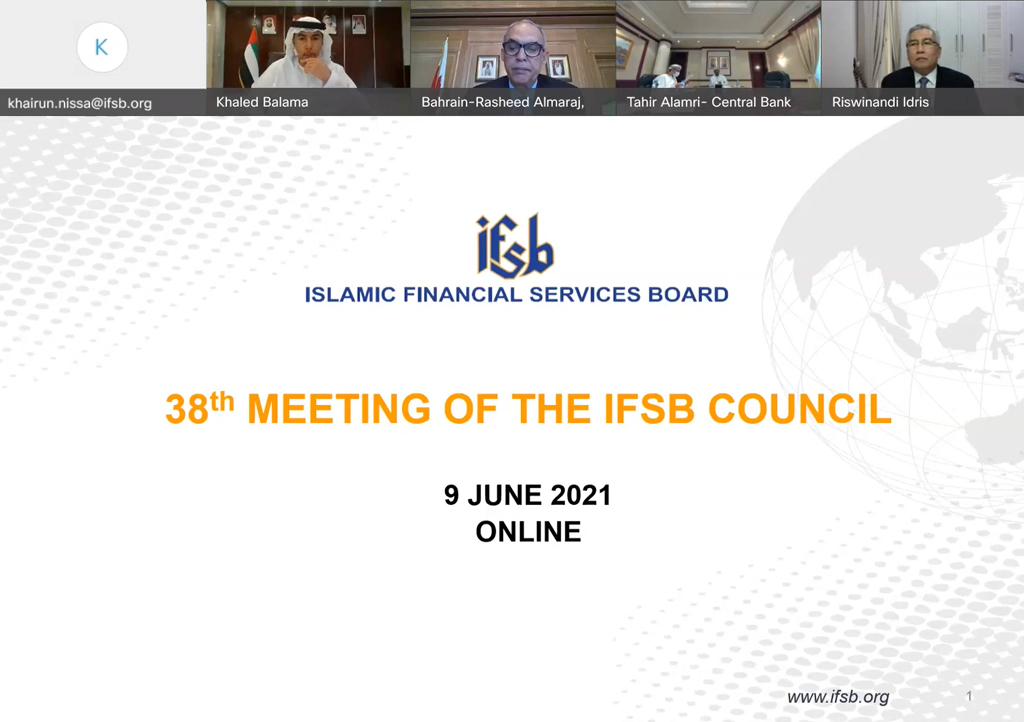Programme - Event Session(s) Date Time Topics Day 1 25/05/2021 09:30 - 09:45 Welcoming and Opening Remarks Dr. Bello Lawal Danbatta, Secretary-General, IFSB 09:45 - 10:30 Public Lecture 1: Current and Post-Pandemic Financial System Stability Challenges: The Way Ahead Speaker: Dr. Tobias Adrian, Financial Counsellor and Director of the Monetary and Capital Markets Department – International Monetary Fund The COVID-19 pandemic has resulted in economic and financial downturns and market turmoil affecting almost every country around the globe in 2020. To alleviate economic pressures, governments adopted various economic and financial policy measures such as tax relief, postponing loan/financing interest/profit payments, special liquidity to labour-intensive sectors (SMEs, etc) and easing macroprudential and microprudential indicators to maintain financial system stability. The effects of the pandemic seem to continue into 2021, as some countries struggle while others show slight indications of economic recovery. Overall, the majority of countries are continuing their efforts to stimulate the economy and contain the pandemic, through the rollout of vaccination programmes, strict health protocols and increasing health facilities. Fortunately, financial system stability as shown by the improved financial market activities, banking and nonbank performance and investors’ investment activities indicates positive recovery. Amongst the lessons learnt from the pandemic are integrated and coordinated economic and financial policies among authorities; digital transformation and financial technology; more social, health and welfare-oriented economic and financial activities. Banks and financial systems as a whole are witnessing transformation to become more agile and adaptive towards sustainable practices. Some issues to be stressed and elaborated on are: (1) How much has the pandemic transformed the current economic and financial system? (2) How to maintain economic and financial system stability and what policies are more likely to remain in the post-pandemic era and beyond? (3) What are shifting paradigms occurred or need to occur to maintain economic and financial stability? (4) What will be the roles of authorities in post-pandemic era and beyond? 10:30 - 11:00 Break 11:00 - 11:45 Public Lecture 2: Islamic Financial System Stability: Post Pandemic Impacts and Way Ahead Speakers: Dr. Zamir Iqbal, Vice President, Finance, Islamic Development Bank Professor Dr. Asad Zaman, Director General International, Institute of Islamic Economics. International Islamic University Islamabad Economic and financial pressures and instability resulting from the pandemic have transformed economic and financial transactions. Electronic contracts and financial agreements, electronic transactions (e-banking, e-sukuk, e-money, etc), financial technology (less physical interactions) and digital currencies have seen wider use in the business and financial markets. Due to massive development of start-up companies, various social media and digital-based transactions have created new ways of collecting, investing and managing both commercial and social funds. Securities crowdfunding, e-payment of zakah, waqf, including their distribution via virtual platforms, may lead to potential Sharīʻah risks. These phenomena vividly impact the global Islamic financial system stability and can lead to the transformation of Islamic finance system to face post pandemic challenges and be more agile, adaptive and innovative. Lately, Islamic finance industry (banks, capital market, takaful) has changed its business model as well as technological adoption in which there are techno-based Islamic finance applications, more social responsive Islamic finance transactions and including eco-friendly Islamic investment applied during and possibly post pandemic condition. Some areas to be discussed: (1) How is the global Islamic financial (IF) system stability during and post pandemic? Is the policy flexibility in the pandemic caused the resilience of IF or (2) What are exit policies currently applied in most of jurisdictions to sustain the IF stability? (3) What are lessons learnt from the pandemic to be responded and incorporated in the current IF practices? (4) What kinds of transformation required by IF to cope with the future economic and finance challenges? 11:45 - 11:45 End of the Public Lecture
